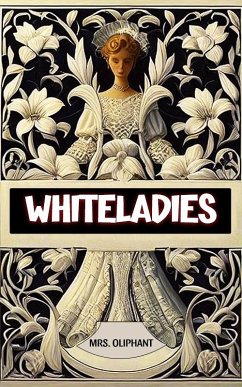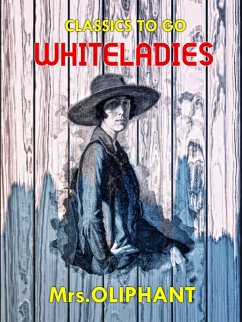
Whiteladies (eBook, ePUB)

PAYBACK Punkte
0 °P sammeln!
In "Whiteladies," Mrs. Oliphant masterfully weaves a narrative that explores the nuanced relationships within a fading aristocratic family in 19th-century England. Through her intricate character development and keen social observations, Oliphant illuminates the tension between individual desires and familial duty, set against a richly textured backdrop of English society. The prose is elegant and reflective, employing a tone that resonates with both poignant melancholy and subtle humor, capturing the complexity of her characters' lives amidst swirling social changes of the Victorian era. Mrs....
In "Whiteladies," Mrs. Oliphant masterfully weaves a narrative that explores the nuanced relationships within a fading aristocratic family in 19th-century England. Through her intricate character development and keen social observations, Oliphant illuminates the tension between individual desires and familial duty, set against a richly textured backdrop of English society. The prose is elegant and reflective, employing a tone that resonates with both poignant melancholy and subtle humor, capturing the complexity of her characters' lives amidst swirling social changes of the Victorian era. Mrs. Oliphant, a prolific Scottish novelist and biographer, was known for her insightful portrayals of women's roles and the struggles of the Victorian psyche. Her own experiences as a writer navigating a predominantly male literary world undoubtedly informed her sensitivity to the challenges faced by women like her protagonists. Through "Whiteladies," Oliphant channels her observations of societal expectations and personal fulfillment, making her work a reflection of both her time and her own life experiences. Readers seeking a deep exploration of personal and social themes, rendered with exquisite prose, will find "Whiteladies" a compelling addition to their literary collection. This rich narrative not only serves as a window into a bygone era but also resonates with contemporary issues of identity and societal obligation, making it a timeless read.
Dieser Download kann aus rechtlichen Gründen nur mit Rechnungsadresse in A, B, BG, CY, CZ, D, DK, EW, E, FIN, F, GR, H, IRL, I, LT, L, LR, M, NL, PL, P, R, S, SLO, SK ausgeliefert werden.













